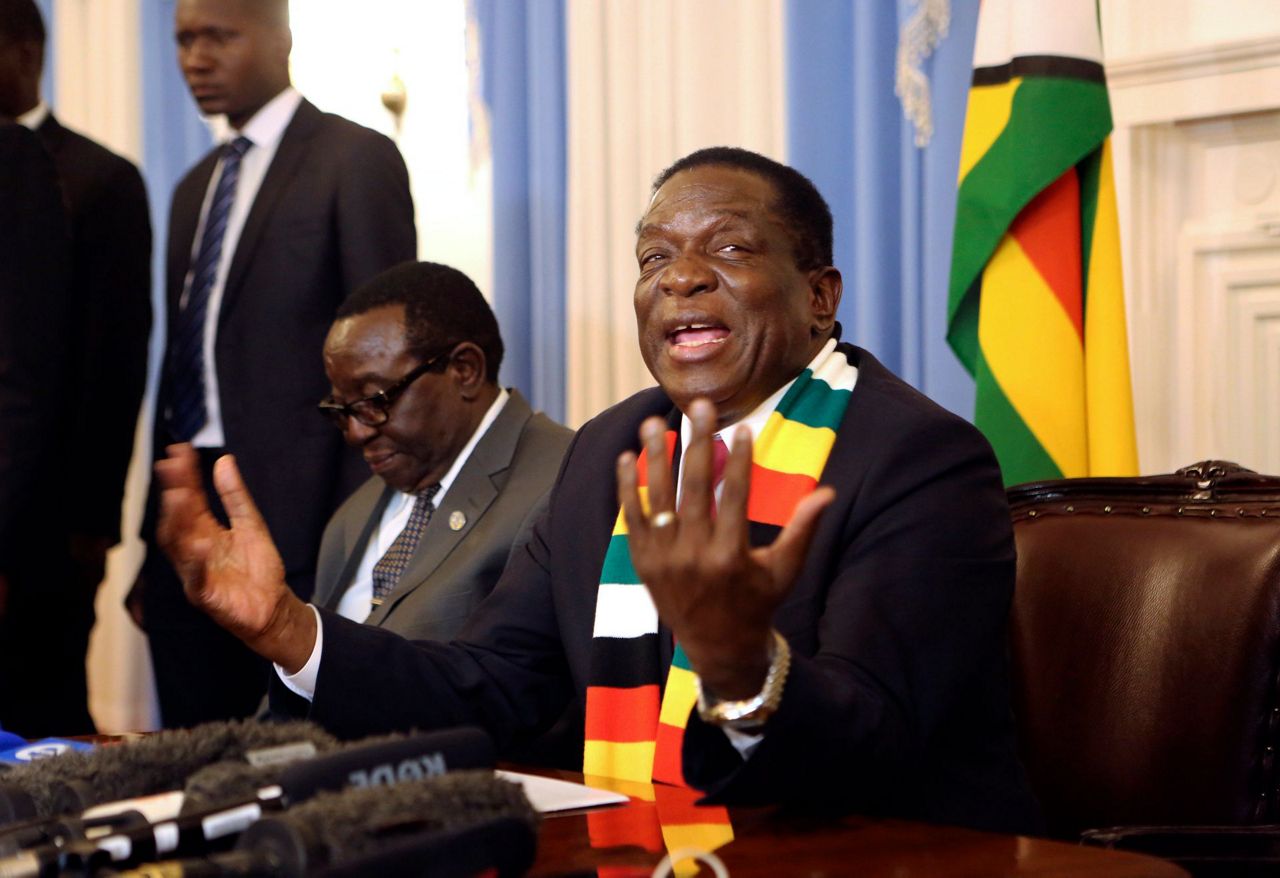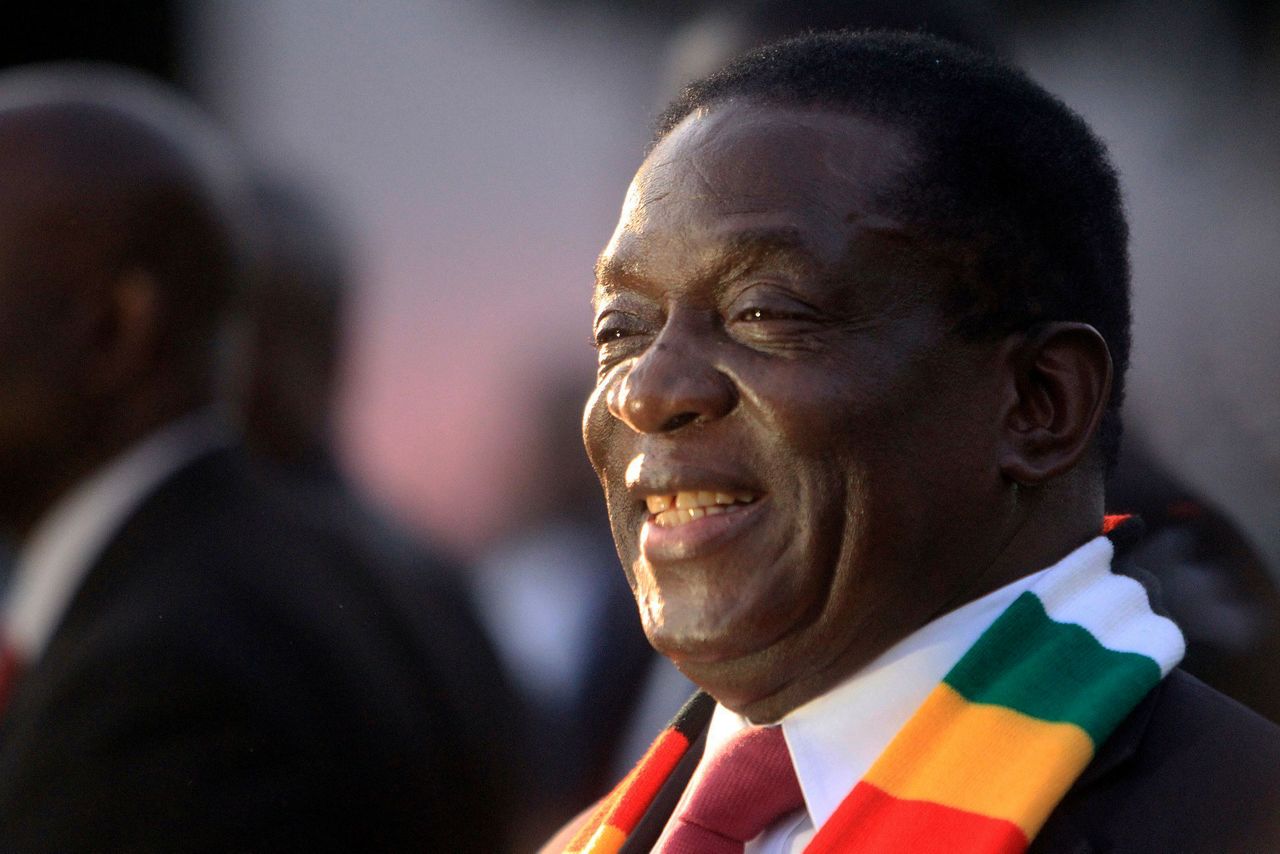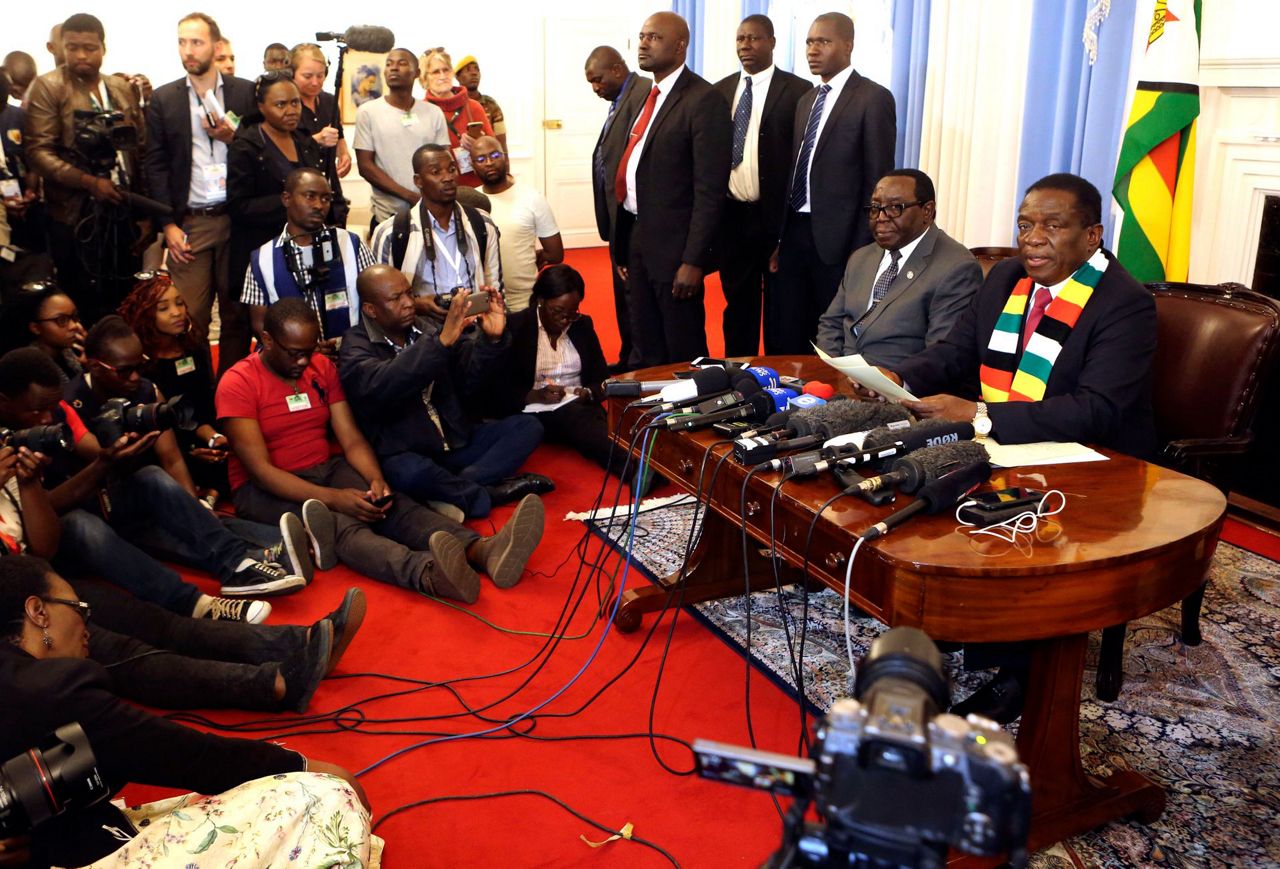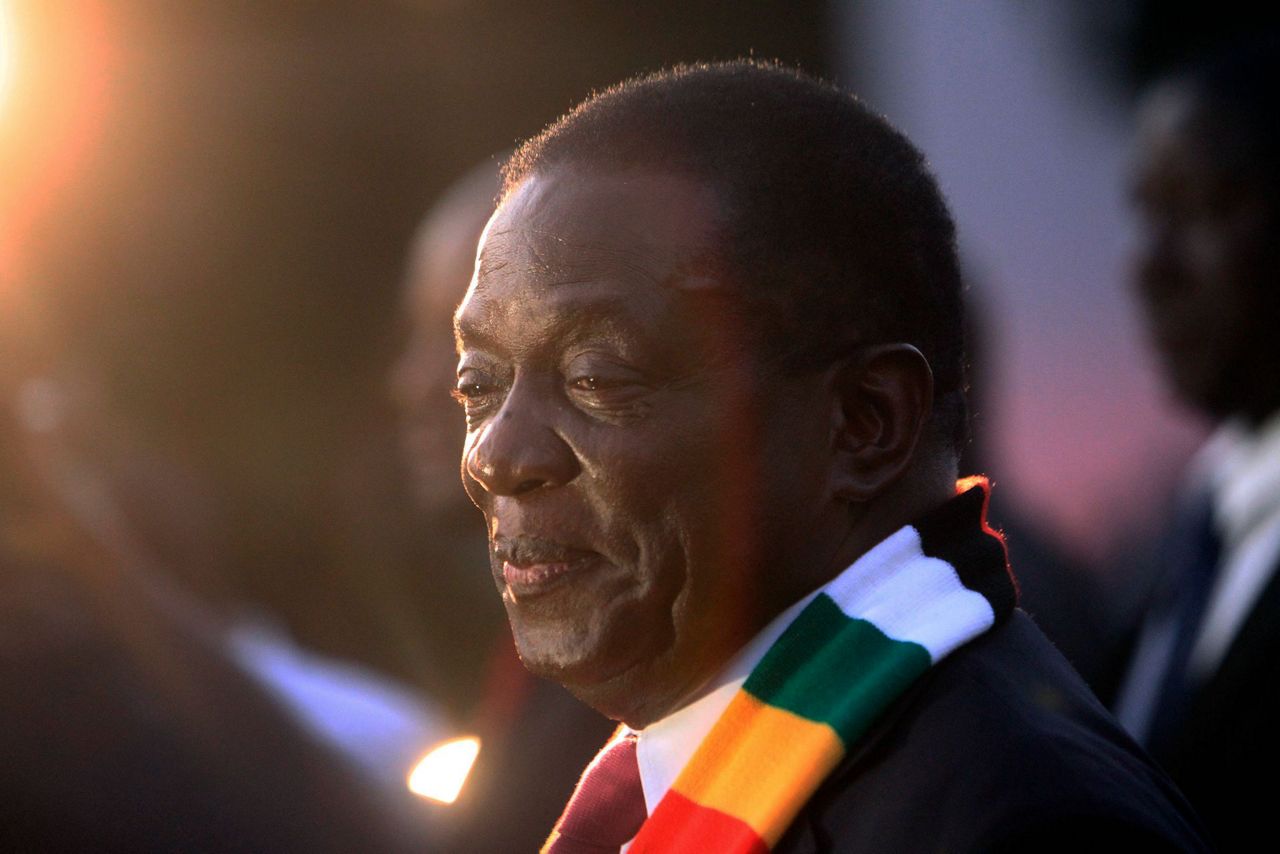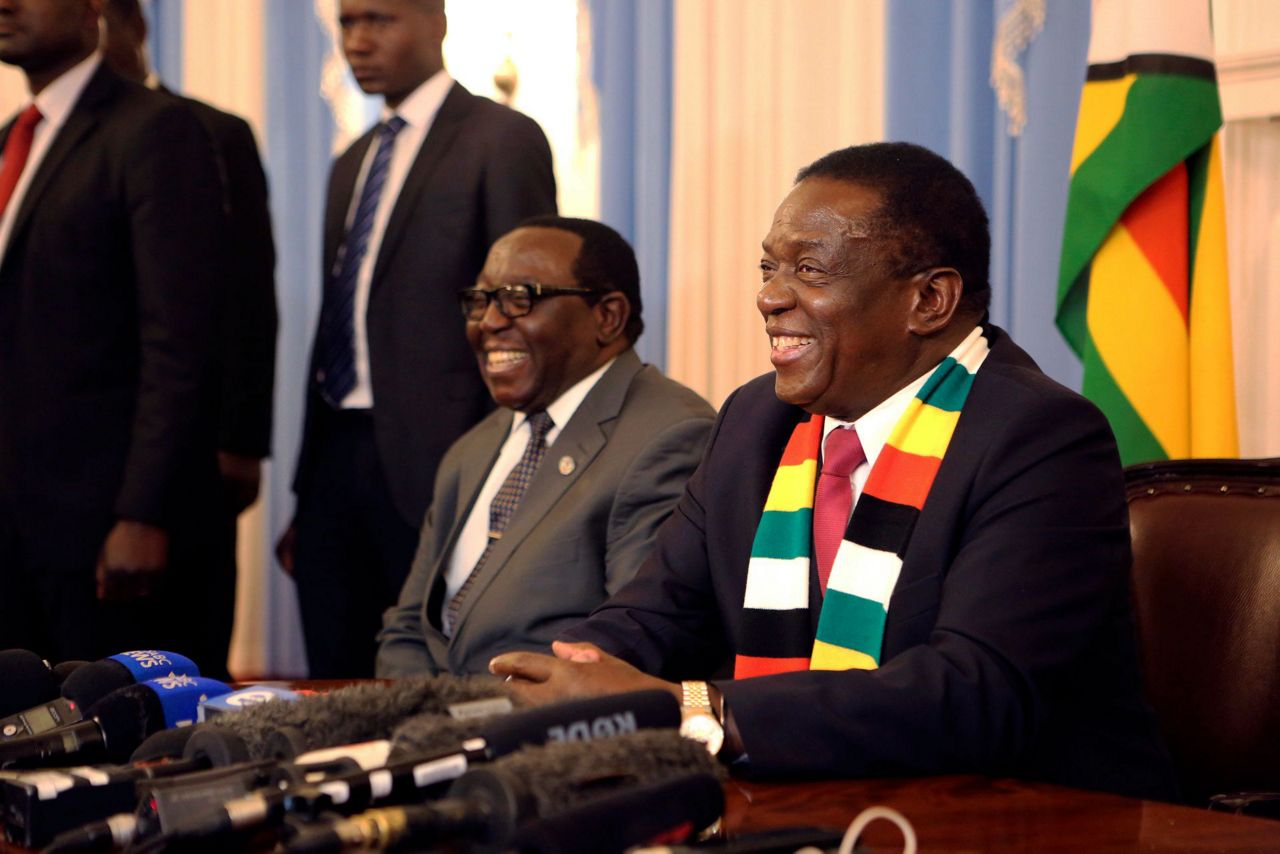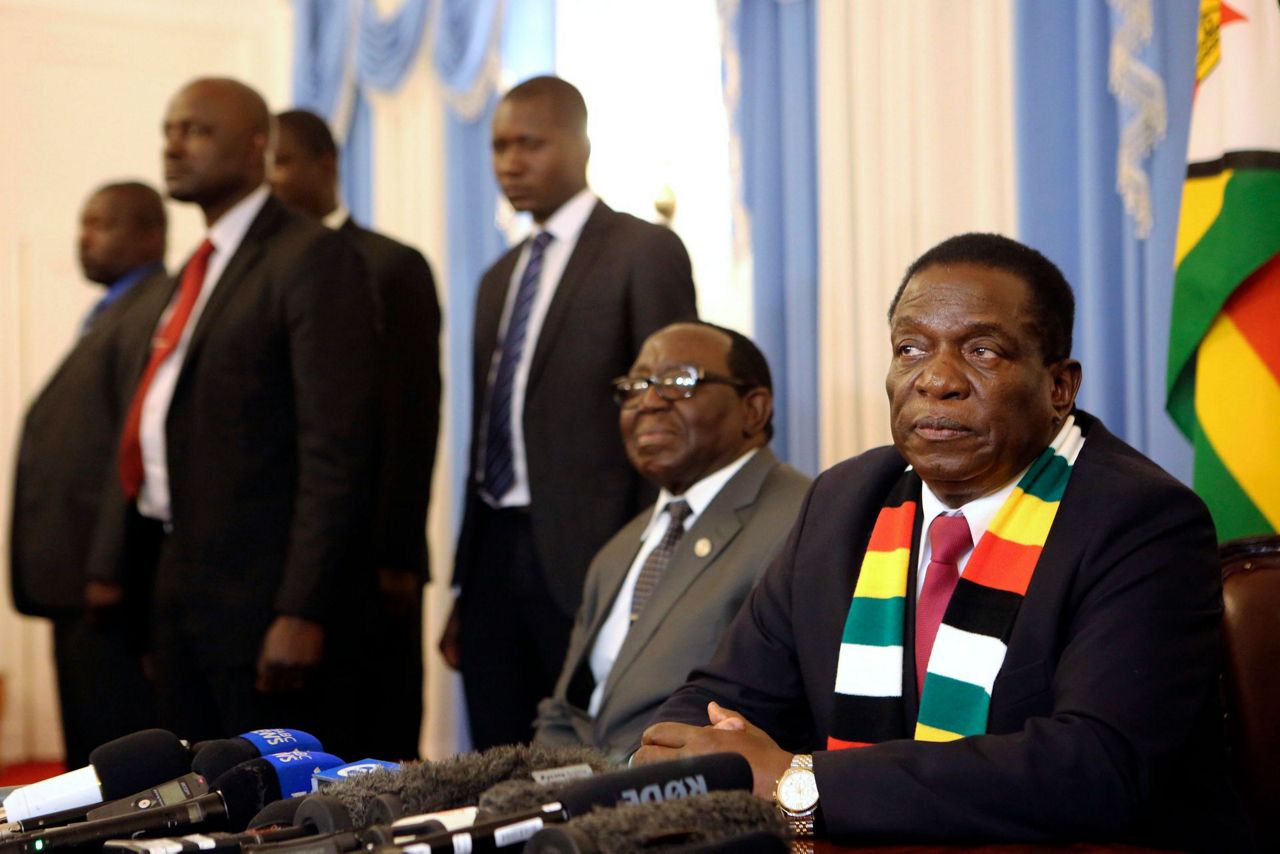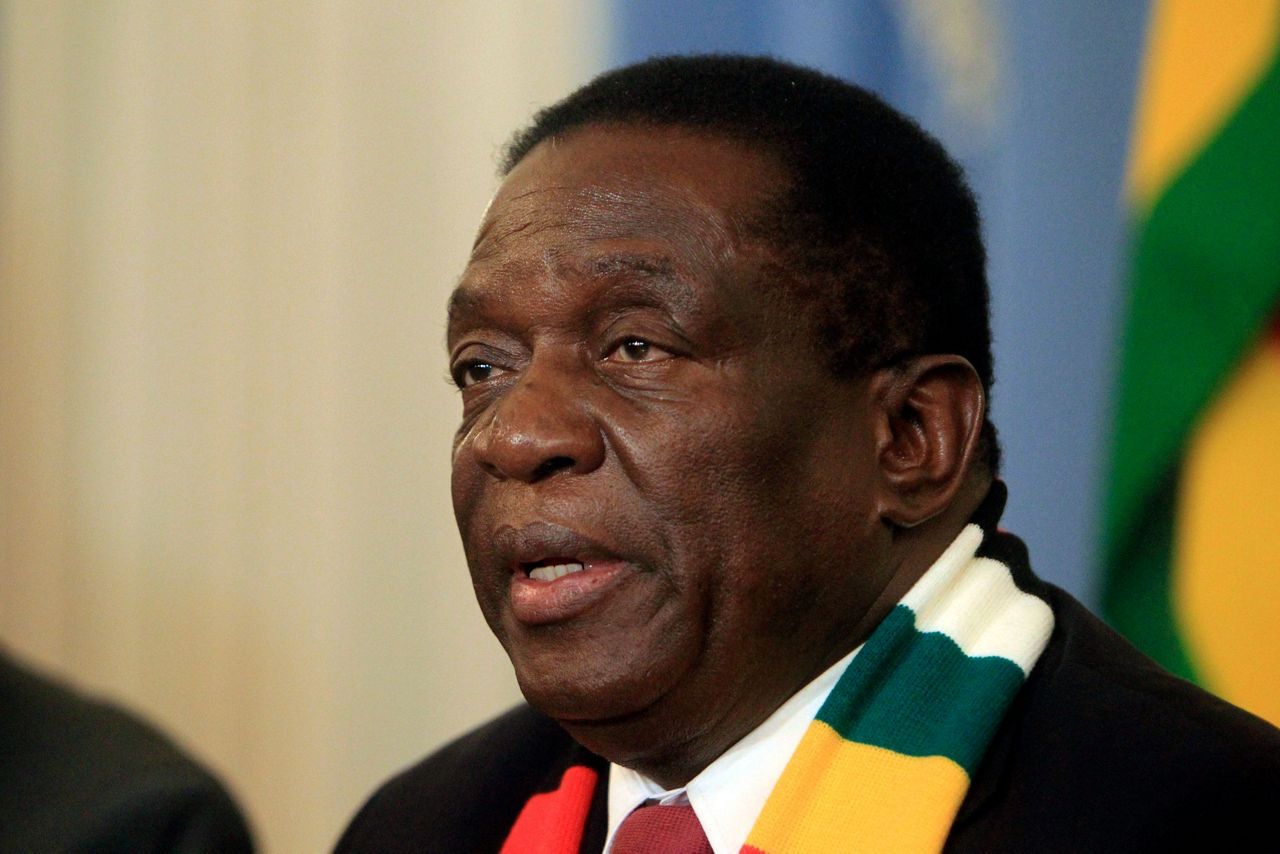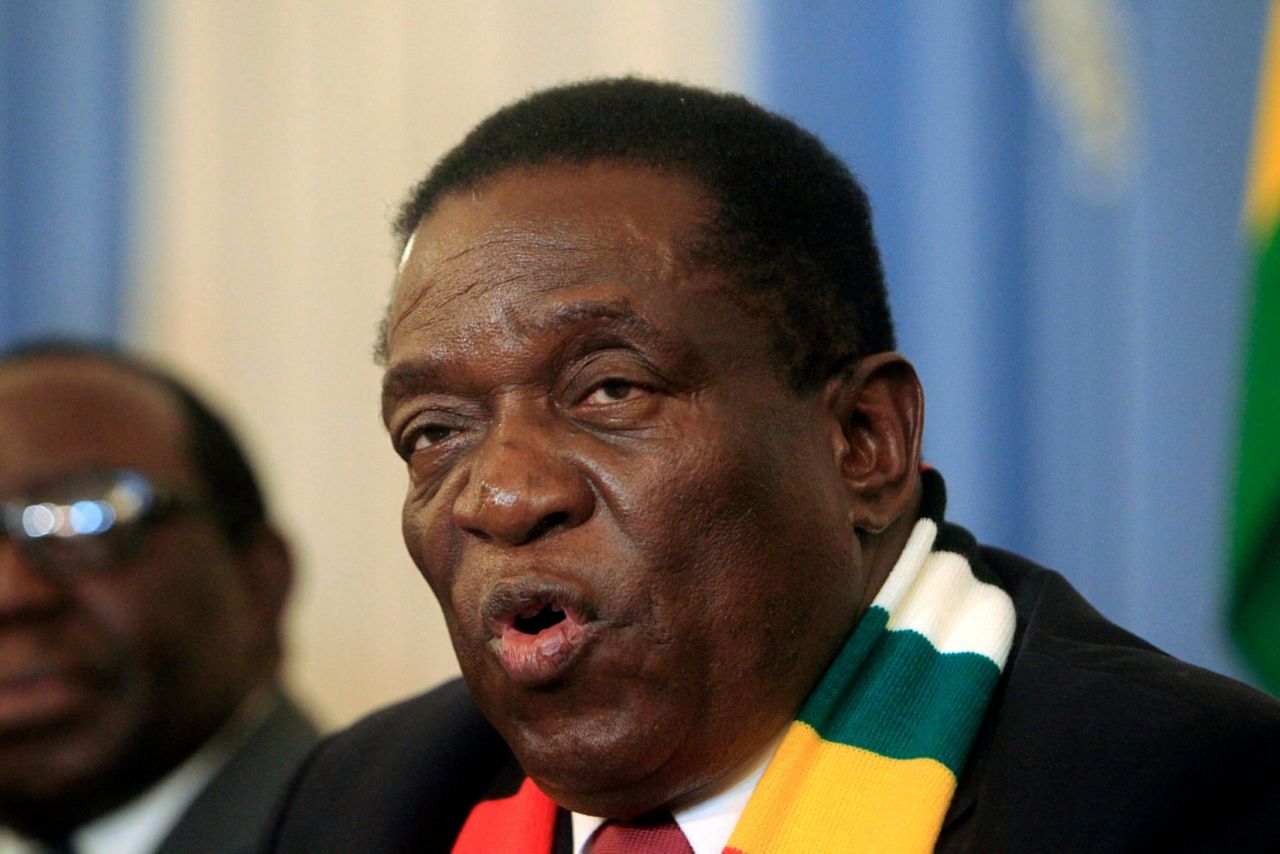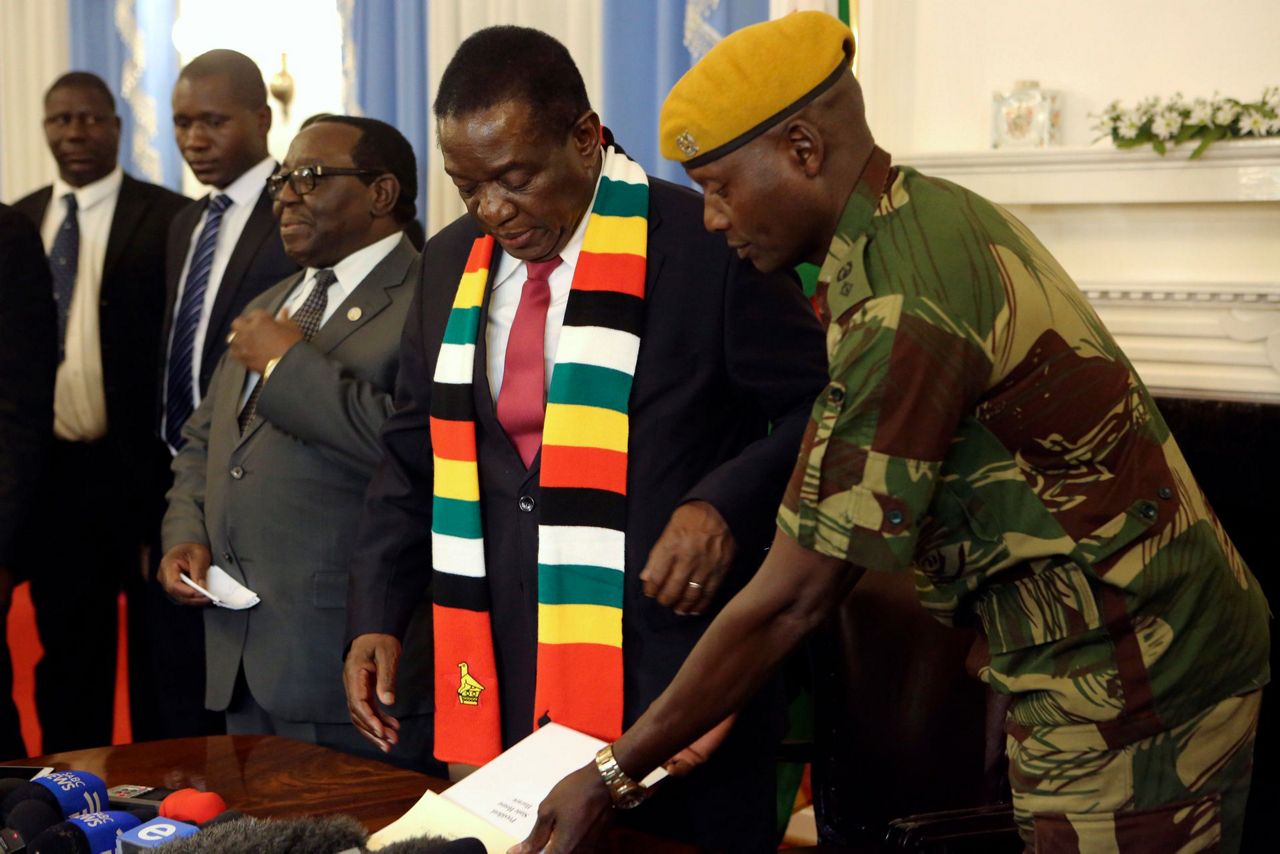JOHANNESBURG (AP) — He's known as "the Crocodile," named after a small band of guerrillas battling white minority rule in the land once known as Rhodesia.
Now the 75-year-old Emmerson Mnangagwa has another big challenge as the new president of Zimbabwe: reviving its formerly prosperous economy, reining in the military and bridging the country's deep political divide resulting from a disputed election.
Like the reptile that stalks the rivers in this southern African country, Mnangagwa is more feared than popular.
But he has strategically fostered a base of loyalists within the military and security forces and has honed political skills that he learned from his longtime mentor Robert Mugabe, who served as president of Zimbabwe for 37 years.
For decades, Mnangagwa was Mugabe's enforcer, earning a reputation for effectively manipulating the levers of power.
A leading Cabinet member since Zimbabwe's independence in 1980, he became vice president in 2014. He was fired by Mugabe in November 2017 and immediately left the country, claiming his life was in danger. The army then put Mugabe under house arrest, and within two weeks, Mnangagwa was back in Zimbabwe, where the ZANU-PF party and then parliament voted to make him president.
On Monday, Zimbabwe held its first general election without Mugabe on the ballot, and Mnangagwa ran a campaign that was considerably more free than previous ones. His party allowed the opposition to campaign safely throughout the country, in both urban and rural areas. International observers were invited after an absence of 18 years.
But the peaceful balloting has turned messy and violent: Opposition leader Nelson Chamisa has alleged there was vote fraud, protesters filled the streets of Harare on Wednesday, and a violent crackdown by the military and police resulted in at least six deaths.
When the result was announced more than three days after the election, the Electoral Commission said Mnangagwa got 50.8 percent of the vote to Chamisa's 44.3 percent.
On Friday, Mnangagwa's government had to pull back three truckloads of riot police who were trying to prevent a news conference by Chamisa challenging the outcome. Mnangagwa quickly issued a statement saying the police should not have taken such action, but by then the media had broadcast around the world the menacing actions by the security forces.
During the campaign, Mnangagwa has worked to develop a friendly image and appear more youthful by dyeing his once-gray hair. He has adopted as his trademark a striking scarf in Zimbabwe's reggae colors.
More substantively, Mnangagwa says he will run a business-friendly government focused on rebuilding the economy. Yet the military violence showed an authoritarian streak reminiscent of the 94-year-old Mugabe.
"Can a Crocodile change his scales? It's unlikely, but we will see how he reaches out to the nation, how magnanimous he is in his acceptance and inauguration speeches," said Piers Pigou, southern Africa expert for the International Crisis Group. "He is making all the right noises. But the specter of the military shooting protesters in Harare shows that it will be difficult for him to operate independently from the army."
Mnangagwa's links to the military and ruling party go back decades. He joined the fight against white-minority rule while still a teenager in the 1960s, receiving military training in Egypt and China. He was captured, tortured and convicted of blowing up a locomotive in 1965.
Sentenced to death by hanging, he was found to be under 21, and so his punishment was commuted to 10 years in prison. He was jailed with other prominent nationalists, including Mugabe.
While imprisoned, Mnangagwa took correspondence courses. After his release in 1975, he went to Zambia, where he completed a law degree and started practicing. Later, in newly independent Marxist Mozambique, he became Mugabe's assistant and bodyguard. In 1979, he accompanied Mugabe to the talks in London that led to the birth of Zimbabwe.
"Our relationship has over the years blossomed beyond that of master and servant to father and son," Mnangagwa wrote last year of his relationship with Mugabe.
When Zimbabwe achieved independence in 1980, Mnangagwa was appointed security minister. He directed the merger of the Rhodesian army with Mugabe's guerrilla forces and the forces of rival nationalist leader Joshua Nkomo.
In 1983, Mugabe launched a brutal campaign against Nkomo's supporters in the southern provinces that became known as the Matabeleland massacres in which 10,000 to 20,000 Ndebele people were killed. Mnangagwa was widely blamed for planning the deadly operation by the army's North Korean-trained Fifth Brigade, but he has always denied it.
He also is reputed to have amassed a fortune. He was named in a U.N. investigation into the exploitation of mineral resources in Congo and has been active in making Harare a significant diamond trading center.
In 2008, Mnangagwa was Mugabe's agent in an election marked by violence and allegations of vote-rigging, leading him to be placed under U.S. sanctions that continue to this day. He also helped broker the creation of a short-lived coalition government that brought in opposition leader Morgan Tsvangirai as prime minister.
He has a reputation for saying little and acting decisively, although usually stone-faced Mnangagwa occasionally flashes a winning gap-tooth grin. Party insiders say that in private he can be charming.
In recent years, Mnangagwa has promoted himself as an experienced leader who would bring stability. He said after the election that he was "humbled" by the victory.
"He is known as a tough man, a henchman, part of the authoritarian culture of ZANU-PF," said William Gumede, chairman of Democracy Works and professor at Witwatersrand University. "Now he is trying to recast his image as a more conciliatory leader. He will be tested to see if he can pull Zimbabwe together."
Gumede added: "If he tries to do that with an iron fist, with the military, I don't think he will succeed. Zimbabwe's people are emboldened by the fall of Mugabe, and I don't think Mnangagwa can put the genie back in the bottle."
___
Follow Africa news at https://twitter.com/AP_Africa
Copyright 2018 The Associated Press. All rights reserved. This material may not be published, broadcast, rewritten or redistributed.



